Starting City Tech Society
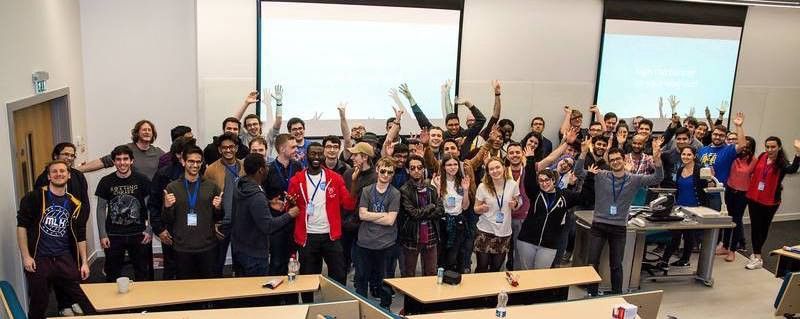
This is kind of like a recap of my experience running my university’s tech society, as well as of my previous academic year in general.
When I first started university, the first thing I did was go to the freshers fair. I had a few interests that I was hoping I’d find societies catering for, namely technology. I got there early and and spent longer than I probably should have looking for a tech society. Long story short, there wasn’t one which I was quite bummed out about.
I did, however, come across CityStarters. They’re less of a society and more of the university’s entrepreneurship arm. I’ve always had a strong interest in startups so I signed up to be notified about their events. I went to every single one of their events in my first year, of which there were dozens, almost like I was filling some sort of void. I met some pretty interesting people and generally found the events to be great.
But towards the end of the year, I kind of realised something. Of all the people I had met at these events, barely any were technical. I met two other Computer Science students there over that entire academic year. Most of the students who attended these events were business students from Cass, our university’s business school. Those who weren’t Cass students weren’t students at all, since these events were open to the public.
There weren’t any engineers, no techies. I’d tell people I’m a Computer Science student and they’d offer me to be their CTO. Like, no, I’m just learning Java out here. You haven’t even asked me my name yet.
There was this huge mismatch. You had these awesome startup events on campus, and engineering and technology students next door who weren’t going to them. Wut. I didn’t exactly know why, whether they didn’t know about the events. or just didn’t have any interest.
Starting a tech society had been lingering on my mind since that first freshers fair, but it seemed more and more like something that I needed to do. If only to expose technical students to entrepreneurship.
Separately, I liked working on side projects and talking about side projects with other people. But I hadn’t come across many students who also worked on projects outside of the curriculum, out of pure interest.
I didn’t know if these people existed, or if they did and we all just built things and went to events in silos because there was no way of knowing who else was into the same things. There wasn’t much of a hacker culture at the university.
I spent my second year working as a teaching assistant at the university, which is how I met Abdul. We went to HackLondon 2016 together, our first hackathon. Then a few more after that. Along the way we discovered the Hackathon Hackers EU community, which is a sub community of a larger global community of students and graduates who like going to/ organising hackathons and building awesome stuff. I mean, GitHub would sponsor monthly dinners where you’d just turn up to Nandos, chat with interesting people over dinner, and they’d get the bill. Free food and talking tech. How did we not know about this before. This community is also how I met Joe Nash, among other awesome people who’ve been a great help.
Myself and Abdul started planning for a tech society at City around April 2016, maybe slightly before that. Hackathons, technical workshops and tech talks were on the agenda. This was towards the end of that academic year so we couldn’t do a whole lot, but we did run a tech talk as a trial, where we invited some game developers to talk to students about what they did. We had a decent turn out and learned a lot about the kind of community we wanted to build. I was still working at the university which gave me access to staff meetings, where I kind of ‘announced’ the tech society initiative to lecturers and teachers in the hopes of getting some support. There was some good feedback and excitement and it was good to know that we had the Department of Computer Science’s backing.
We spent the summer setting up meetings and planning for the kinds of events we wanted to host. A Trello board was set up, a Slack team, a domain name registered (obv) and a site built. We brought Thea onto the committee the following academic year, she’d taken over my role as student teaching assistant at the university. It proved to be quite useful having a member who was also a liaison with the Department.
We went to a conference in the Netherlands in September, organised by Major League Hacking and hosted by GitHub. Students from across Europe came together to learn and teach each other about how to organise hackathons. It was invaluable to say the least.
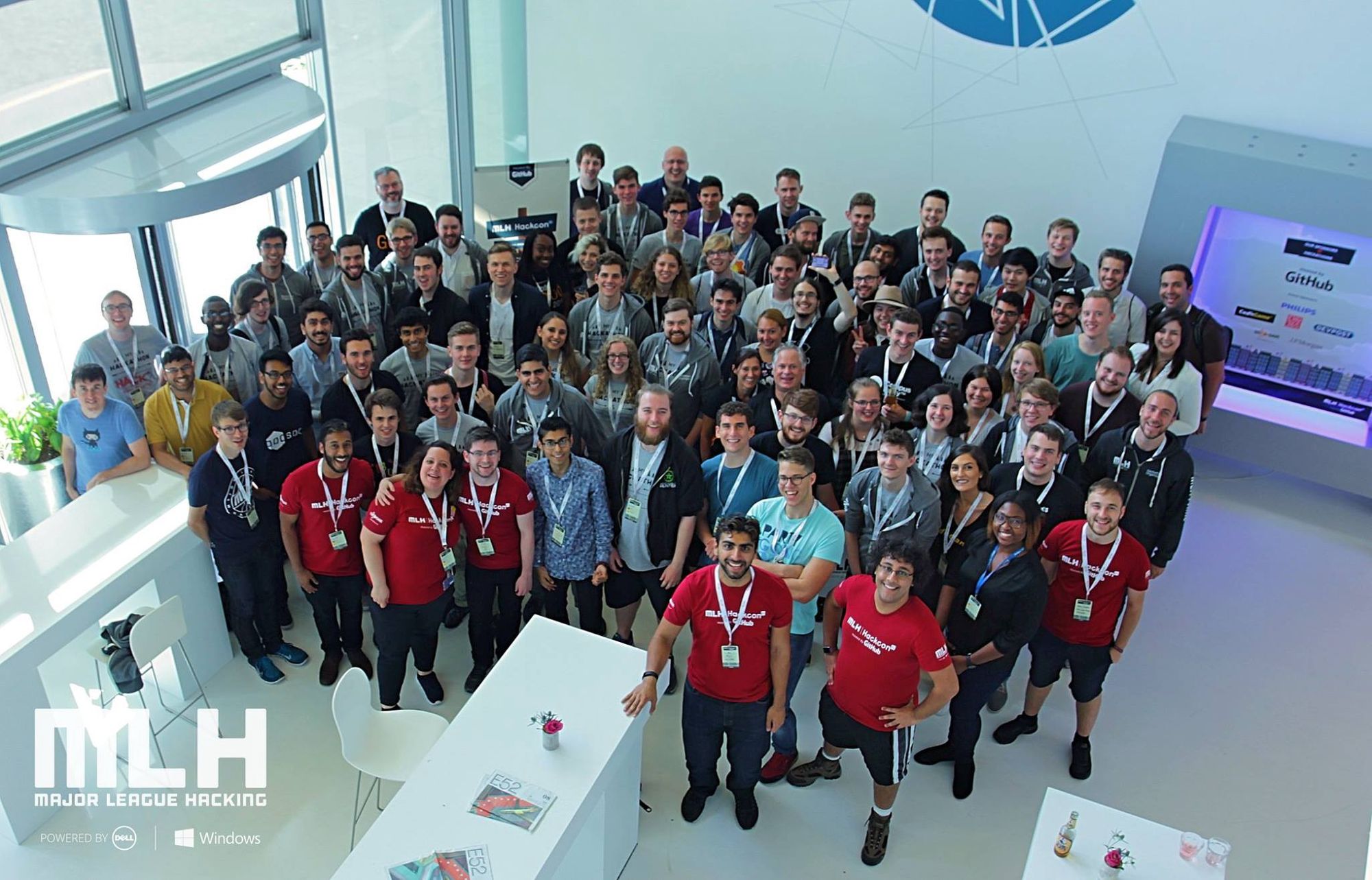
There was also the tremendous help being a GitHub Campus Expert provided (shout out to Joe Nash and GitHub Education again). If you’re a technical student anywhere in the world, check out the programme. In short, it provided a great deal of technical leadership training and access to educational events that I otherwise would probably not have gone to.
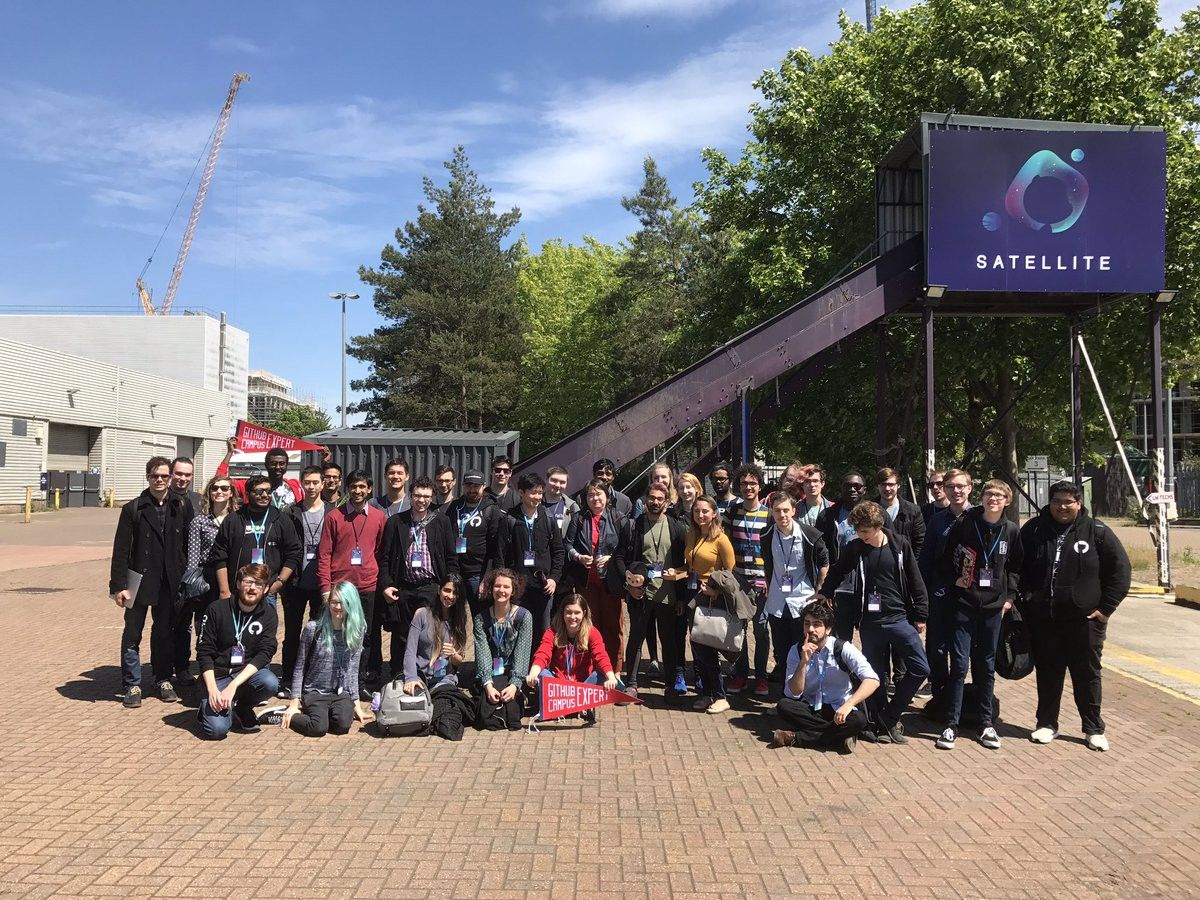
One of the other events we hosted was a mini-conference titled ‘Developing As a Developer’, which was a non technical event on how to overcome self doubt and other hurdles. The keynote was given by
Amy Dickens, an awesome fellow GitHub Campus Expert from the University of Nottingham, on how to overcome impostor syndrome.
I spent a great deal of time trying to convince my department to include the teaching of Git in the curriculum.
Lo and behold, a lecturer reached out after finding out that I was the university’s GitHub Campus Expert, and asked me to deliver a lecture on Git as part of his module. I mean I wanted Git taught, bc awesomeness, but meee, give a lectureee. Is you mad. It helped that these were the same set of students that I had spent the previous year teaching, though never in a lecture setting.
But I gave the lecture and it went well. Having done Git workshops prior to this had also helped.
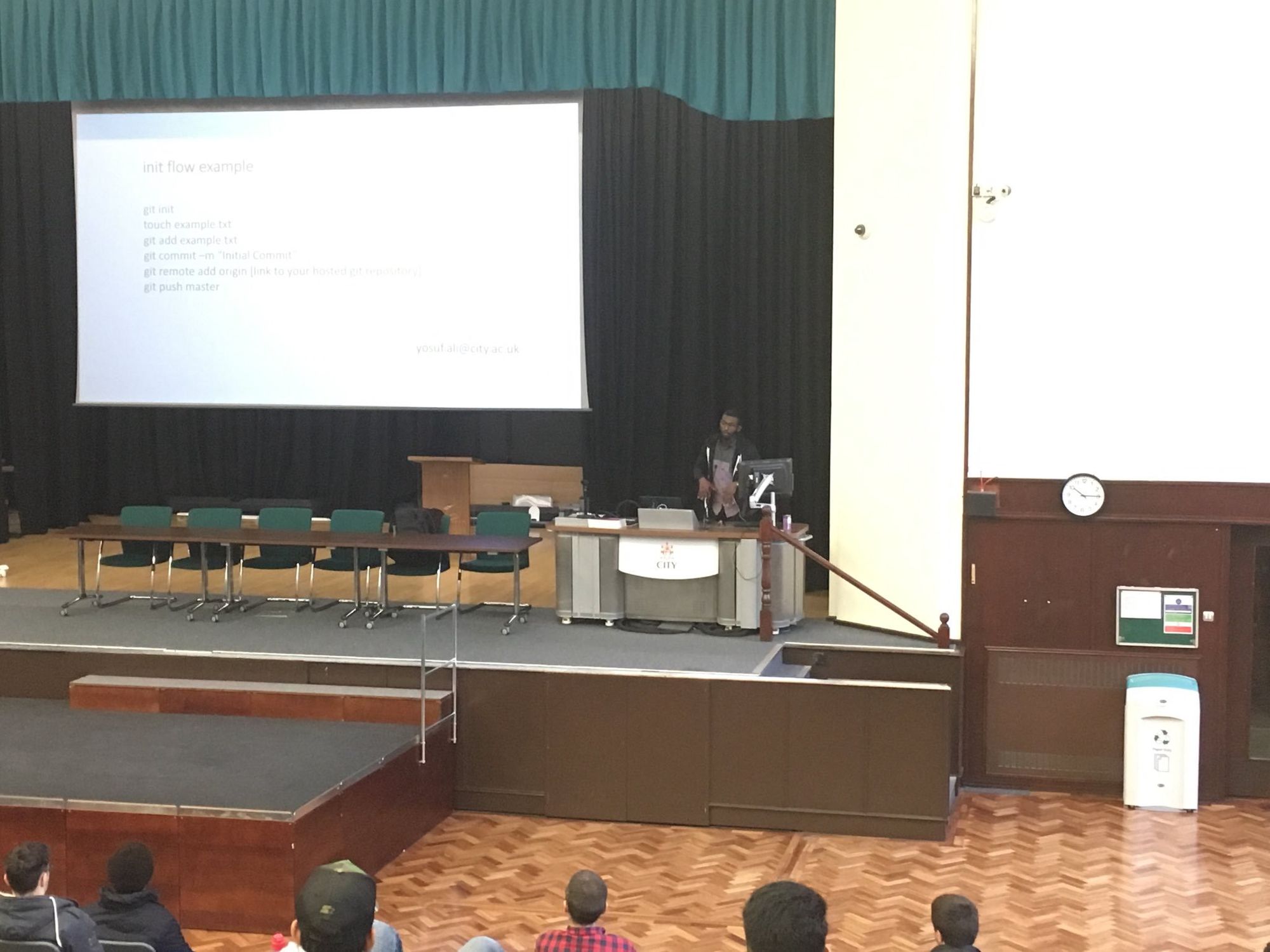
Of all of our events, our largest was our flagship, HackCity. It was City’s first full fledged hackathon, and we spent about 7+ months planning for it and more money than we thought was possible to spend on a weekend event. (Shout out to Curtis, who joined the society’s committee in January and hit the ground running, handling pretty much all of our sponsorship. Jordan also joined the same time and came on to handle all of our design work. Both did amazing work).
It took a tremendous amount of effort to pull off, especially given the fact it was our first of this size. We had a great deal of help from GitHub and Joe Nash, as well as invaluable advice from students across the UK who had organised hackathons before. Thanks also to all of the volunteers who helped during the event.
Things weren’t exactly smooth sailing organising the event, they rarely are with hackathons. But the event itself was a huge success. We had over 140 people from across UK and beyond attending, with students coming from as far as Paris, France.
I could probably write a separate piece on my experience organising HackCity, so I’ll stop here. The Department of Computer Science were a great help throughout the year. And a special thanks to the Students’ Union for saving our asses more than once. Here are some photos from the event:
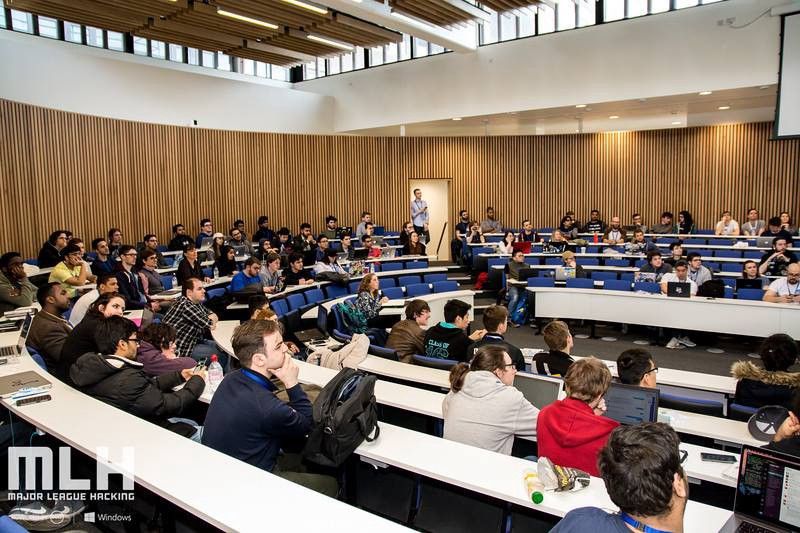
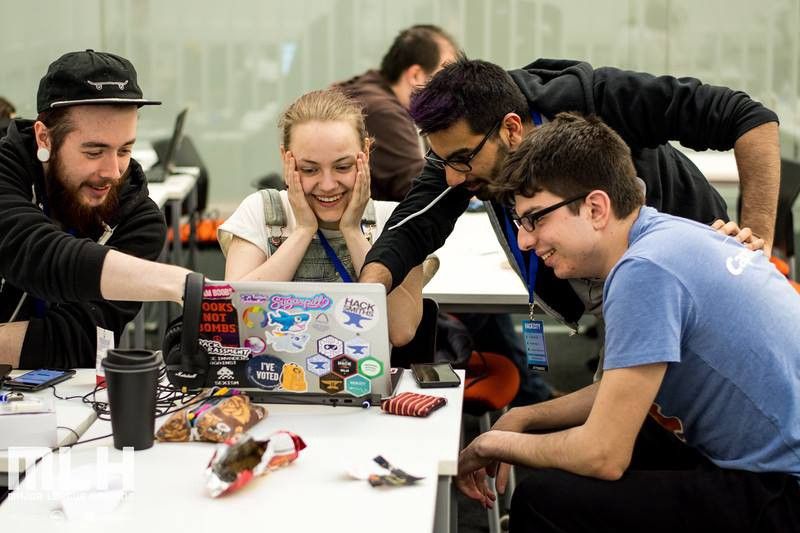

After we had wrapped up our events for the year, the Student Unions Awards ceremony began to approach. We had been shortlisted for best new society, though there was pretty good competition. I believe there had been about 50 new societies this year. But we ended up winning. Thanks to everyone who voted 🙌🏾.
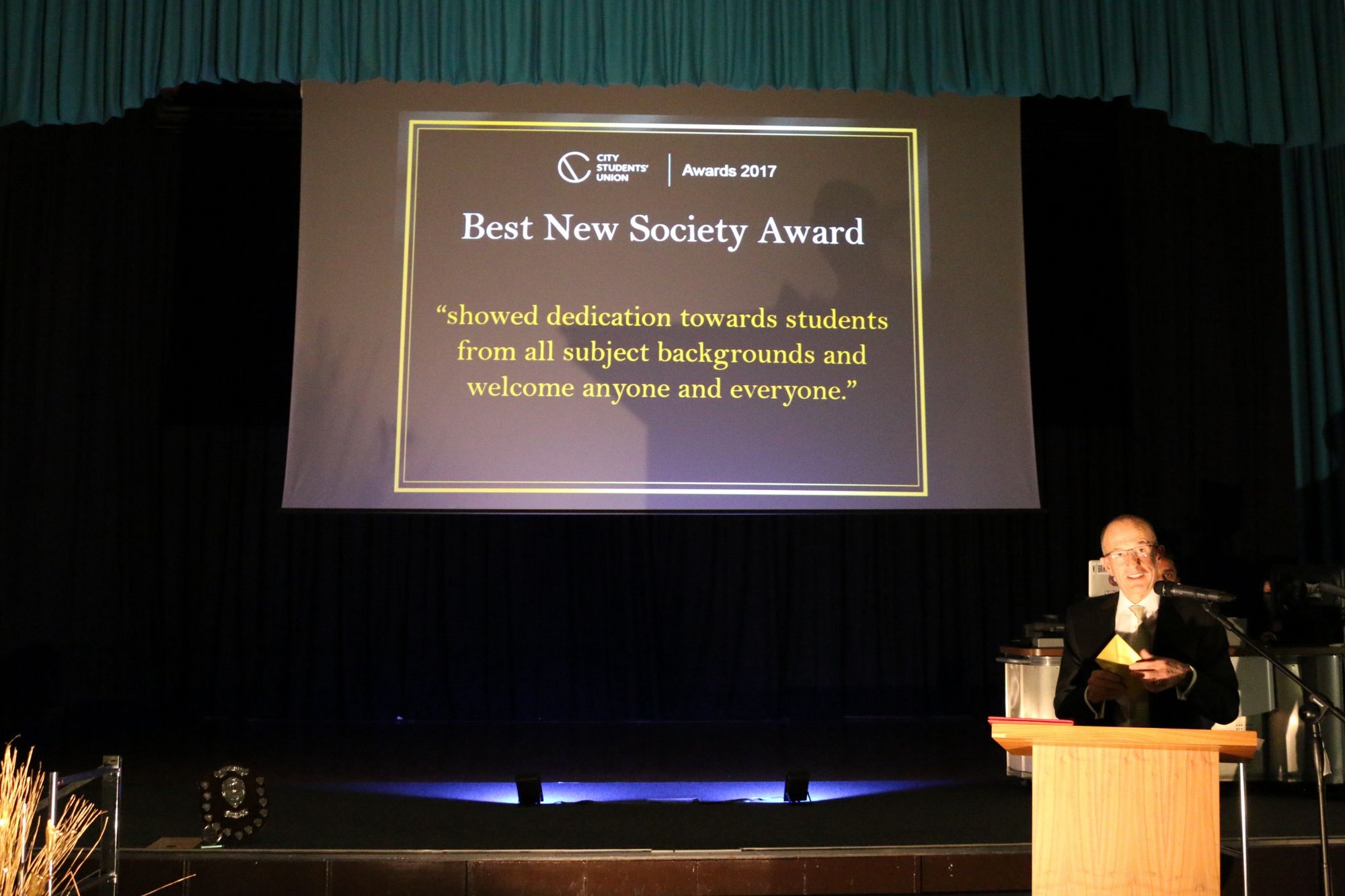

After some time, I got a call from the Student’s Union saying they wanted to nominate us for the National Societies Awards. After nominations had closed, we ended up being shortlisted as one of six chosen societies for Best New Society in the UK.
We came second place🔥.
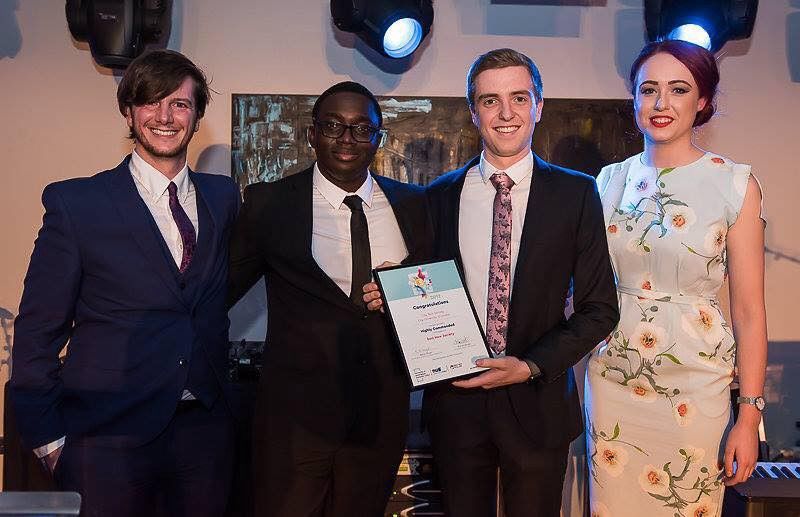
This year was by far my most stressful year. I’ve never dealt with more emails in my life. (I was also an almost full-time software engineer which actually also helped but also not really lol). 90% of everything I did this academic year was outside my comfort zone. But most growth happens outside of your comfort zone. It helps to have a support network and an idea of what you want to do, but sometimes you kinda just have to jump into it.
Sometimes you’ll need to take breaks, and Lord knows I switched off at times (shoutout to Abdul and the rest of the team for dealing with my randomly going offlines lol) which is fine I think, but it also stresses the importance of having people who are as passionate about what you’re doing as you are, and a system which means anyone can pick up where someone else leaves off.
I’ve kind of glossed over some things bc otherwise we’d be here forever. But if you want to chat about anything mentioned, feel free to reach out.
The HackCity photos above are courtesy of MLH and you can find more here. Photos of our other events can be found here.
You can also keep up with what the tech society is up to on twitter and facebook. Abdul will be taking over as president for the coming year and it’s gonna be great. I’ll of course still be around, but I should probably give this studying thing a chance lol.